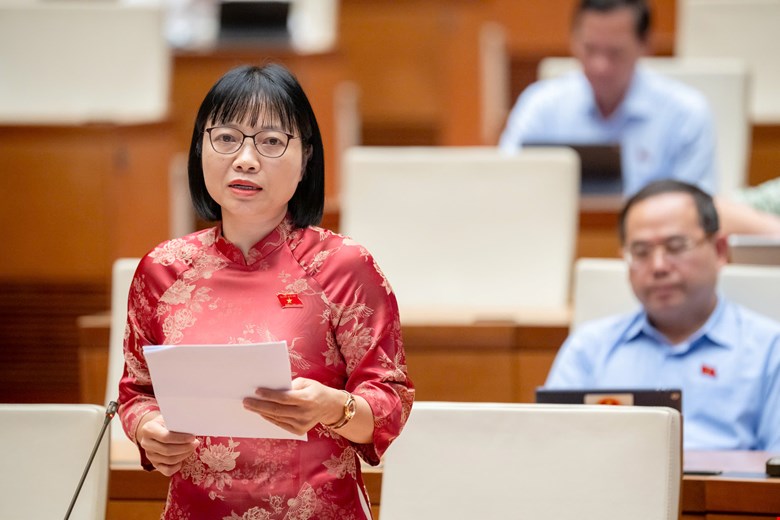On the afternoon of May 13, continuing the 9th Session, the National Assembly discussed in the hall the draft Law on Science, Technology and Innovation.
Speaking, delegate Nguyen Thi Viet Nga (Hai Duong Delegation) expressed her support for legalizing the spirit of " risk acceptance", because the nature of research and innovation is to accept accept accepting controlled failure. However, without a transparent mechanism, this regulation can easily be overused.
From there, the delegate proposed to clarify the line between acceptable risks, such as model errors, failed testing... and violations that cannot be exempted from, such as fraud and poor research ethics.
The delegate also proposed the establishment of a risk assessment council with in-depth expertise and independence. Establish a separate fund for adventure research, operating under the "public risk investment" mechanism, evaluating based on creative potential, not just tangible output.

Delegate Nguyen Hoang Bao Tran (Binh Duong Delegation) said that the draft law has instructions for implementing a controlled testing mechanism for each type of technology and field.
This is a mechanism to allow for trying new things, if there are risks, control them, if there are mistakes, correct them, and not be fined immediately. This is a very important door for new models and technologies to be born and grow.
According to the delegate, in reality, in the process of performing the task of state management of science and technology in the locality, we have all found a worrying situation when many research topics after acceptance are not applied in practice, causing waste of resources and reducing confidence in investment efficiency for science.
For the first time, regulations on controlled testing mechanisms have been included in the law, allowing the Government to specify in detail each type, field, and testing subject, creating a common legal framework, applying multiple fields, especially in new technologies such as AI, digital healthcare applications, digital transformation, etc.
This is a very important door for new models and technologies to be born and developed. However, to truly promote the proposed meaning, the delegate suggested the need to legalize the controlled testing mechanism (sandbox) to create a clear and unified legal basis.
Strengthen the coordinating role of the Government and the responsibility for inter-sectoral coordination. Ensure the rights and obligations of organizations and individuals participating in the trial are clarified and legally safe.
On the other hand, the draft also needs to clearly stipulate that subjects licensed for testing in accordance with the provisions of law will not be handled if there is negligence within the testing scope.
Regulate the responsibility of the Government and relevant agencies and units in regulating and promulgating a list of sectors and occupations that are allowed to be tested, censored, testing time and evaluate results, coordinate implementation closely, synchronously and publicly so that good models are replicated.







